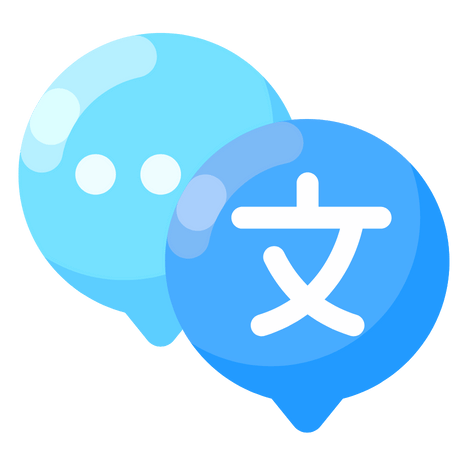In today’s globalized world, general translations and related services have become indispensable for companies wishing to extend their international reach. These comprehensive language solutions offer much more than simply transposing words from one language to another. They encompass a whole range of services designed to facilitate intercultural communication and optimize a company’s presence in foreign markets.
The range of general translation services
Generalist translation services cover a broad spectrum of documents and fields. Unlike specialized translations, which focus on specific sectors such as legal or medical, generalist translations are aimed at a wider audience. They include
- Corporate correspondence
- Marketing and advertising documents
- Websites and digital content
- User manuals and how-to guides
- Annual reports and corporate presentations
Versatility is the watchword of generalist translators. They must be able to juggle different styles and registers of language, while maintaining the coherence and accuracy of the original message. This adaptability is crucial to meeting the varied needs of companies in terms of international communication.
Associated services complement the pure translation offer. These complementary services include :
- Proofreading and linguistic revision
- Cultural adaptation or localization
- Audio and video transcription
- Interpreting for meetings and conferences
- Subtitling and dubbing
These additional services enable companies to benefit from a global approach to multilingual communication, tailored to their specific needs and internationalization strategy.
Quality issues in general translation
The quality of general-purpose translations is essential for effective, professional communication. Companies that neglect this aspect risk seeing their image tarnished and their business opportunities reduced in foreign markets. To ensure optimum quality, several factors come into play:
- Linguistic competence: Translators must have a perfect command of the source and target languages.
- Cultural knowledge: A detailed understanding of cultural nuances is essential to avoid missteps.
- Methodological rigor: The use of computer-aided translation (CAT) tools and specific glossaries guarantees terminological consistency.
- The revision process: A second translator proofreads the text to detect and correct any errors.
The ISO 17100 standard, specific to the translation industry, defines the quality requirements for translation services. It establishes a rigorous framework for service providers, covering all aspects of the translation process, from project management to final delivery.
To illustrate the importance of quality in different types of general translations, here is a comparative table:
| Type of document | Quality issues | Potential impact of a poor translation |
|---|---|---|
| Corporate website | Brand image, international SEO | Loss of credibility, drop in traffic |
| Product brochure | Clarity of information, persuasiveness | Customer confusion, lower sales |
| Commercial contract | Legal accuracy, compliance | Litigation, financial loss |
| User manual | Safety, technical understanding | User risks, overloaded customer support |

Technology in translation services
Technological evolution has considerably transformed the landscape of general translation and related services. Machine translation (MT) and CAT tools have revolutionized industry practices, offering significant productivity gains. However, it is essential to understand that these technologies do not replace the human translator, but rather complement his or her expertise.
Translation memories allow you to capitalize on previous translations, ensuring long-term terminological consistency. Terminology management tools facilitate the creation and maintenance of customer- or domain-specific glossaries. As for neural machine translation, it produces increasingly effective draft translations, which human translators can post-edit to increase efficiency.
Integrating these technologies into the translation workflow offers several advantages:
- Reduced delivery times
- Improved terminology consistency
- Lower costs for large projects
- Ability to handle larger volumes of content
Nevertheless, human intervention remains essential to guarantee the final quality of translations, particularly for sensitive or high value-added content. The professional translator’s judgment is irreplaceable when it comes to adapting the tone, style and cultural nuances of a text.
Companies wishing to make the most of generalist translation services should therefore look for service providers capable of combining linguistic expertise with technological mastery. This combination delivers high-quality translations, while optimizing processes and costs.
Strategies for effective multilingual communication
To fully exploit the potential of general translations and related services, companies need to adopt a strategic approach to their multilingual communication. Here are some key recommendations:
- Centralize language resources: Create a centralized terminology database to ensure consistency across all your documents.
- Upstream planning: Integrate translation right from the design stage of your projects to avoid extra costs and delays.
- Cross-cultural training: Sensitize your teams to the cultural specificities of target markets to facilitate collaboration with translators.
- Regular evaluation: Implement quality control processes and solicit feedback from end-users to continually improve your translations.
By adopting these practices, companies can transform their translation services into a genuine strategic asset, facilitating their international expansion and strengthening their competitiveness in global markets.
Mastery of foreign languages, epitomized by historical figures such as Friedrich Schleiermacher, the 19th century German philosopher and translator, has always been a key factor in international relations. Today, general translations and related services carry on this tradition, adapting it to the demands of the modern business world. They are an essential investment for any company aspiring to a global presence and effective communication across linguistic and cultural boundaries.
